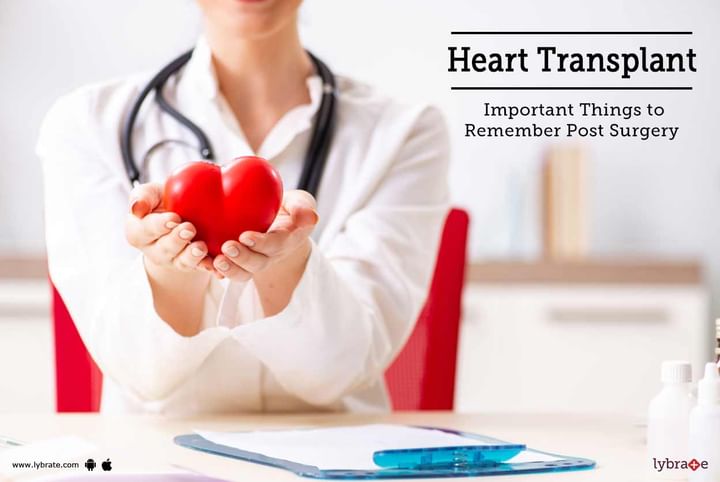Heart Transplant - Important Things to Remember Post Surgery
A heart transplant surgery is performed when the heart stops functioning. In this procedure, the surgeon removes your heart to replace it with a donor’s heart. It is considered to be a major operation and needs special care post-surgery.
In which conditions is heart transplant required?
Heart transplant surgery is usually performed to treat any congenital heart defects in infants. But there are a few conditions, where adults might also require a heart transplant, when no other medication or treatment is able to fix the condition. Some of these conditions include:
-
Cardiomyopathy or weakening of muscles of the heart
-
Coronary artery disease
-
Abnormal heart rhythms or arrhythmias
-
Failure of a previous heart transplant
Are there any complications of heart surgery?
Heart transplant surgery is a major surgery and needs a long hospital stay, including a few days in ICU. Some of the complications associated with this surgery are:
-
Bleeding from the wounds
-
Infection in the area of surgery or stitches
-
Formation of blood clots
-
Risk of heart attack or stroke
What are the dos and don’ts after heart transplant surgery?
It is important to take proper care of your health after undergoing a heart transplant. This will lower your chances of getting any infection later and will also help in improving your condition. Here are a few tips that you can follow post surgery:
-
Don’t miss any medications, it is important to follow the timings and schedule as prescribed by your doctor.
-
Don’t start an exercise routine immediately after the surgery. You should talk to your doctor before joining a gym or starting a heavy exercise.
-
You need to take special care of your diet. Your doctor will suggest you to follow a low-sodium diet, this will decrease the risk of hypertension and fluid retention.
-
Eat fruits, green leafy vegetables and lean meats.
-
Take short naps when you need to, but don't lie around in bed for long periods during the day.
It is important to go for your follow up visits with your doctor and not to miss on any health check-up to avoid any complications.


+1.svg)
